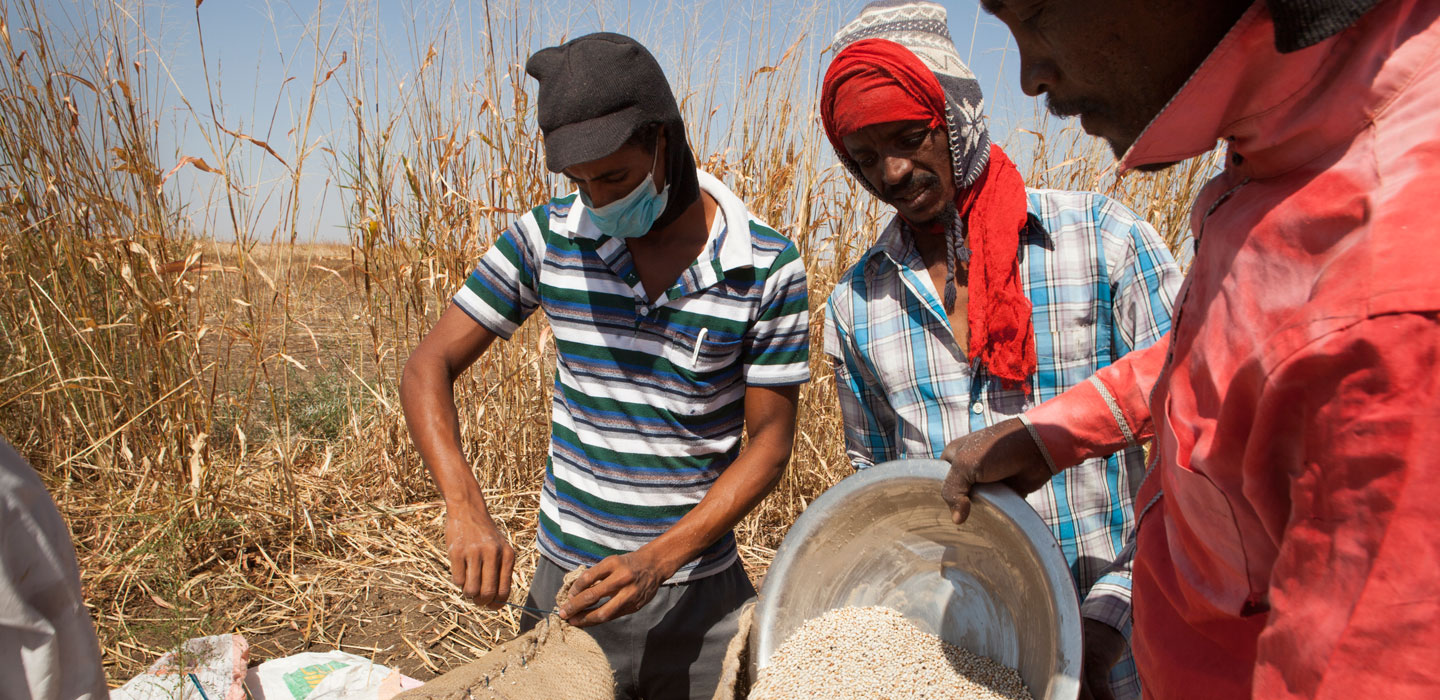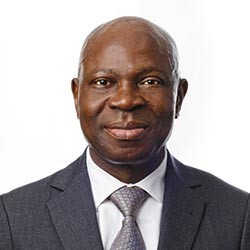Protéger la sécurité alimentaire en Afrique: une priorité en temps de COVID-19
IFAD Asset Request Portlet
Agrégateur de contenus
Protéger la sécurité alimentaire en Afrique: une priorité en temps de COVID-19
Temps de lecture estimé: 5 minutes
©FIDA/Marco Salustro
Presque partout en Afrique, la faim accompagnant les conséquences économiques de la pandémie menace bien plus de vies que la pandémie elle-même...
Cette page sera bientôt disponible en langue françase. Restez connectés!
En savoir plus sur l'action du FIDA face à la COVID-19
In most of Africa, people are more likely to die from starvation caused by the economic fallout from the pandemic than from COVID-19 itself.
Investments must be made to improve resiliency and prevent food shortages.
Humans have an enormous capacity for innovation during times of adversity. Today, while we are still in the throes of the COVID-19 pandemic, people around the world are already asking themselves – how can we build a better post-pandemic world? As we consider addressing the world’s most critical needs, fixing our food systems needs to be at the top of that list.
Food shortages and the risk of starvation
In most of Africa, people are more likely to die from starvation caused by the economic fallout from the pandemic than from the disease itself. An additional 23 million people are expected to be pushed into extreme poverty in sub-Saharan Africa this year alone.
The COVID-19 pandemic has shown us that our current food production, processing and distribution systems are vulnerable. We are hearing from farmers who cannot get seeds or fertilizer for the planting season. Their harvests are threatened by a shortage of farm labourers. They cannot sell the produce they do grow because markets are closed. If not addressed, these could lead to serious food shortages across the continent.
Furthermore, climate and environmental shocks continue to threaten food supplies. In Africa, locusts are still ravaging crops. Most of the continent is still emerging from its worst drought in years. In West and Central Africa, the lean season is coming, with 21 million people facing critical food shortages in July and August. All this makes recovery from the pandemic even more precarious.
At the International Fund for Agricultural Development (IFAD), we are taking steps within our existing programmes to respond to the current situation. These include: providing inputs such as seeds to farmers, securing supply chains by purchasing and storing products and keeping transport routes open. We are also working closely with governments to ensure the right policies are in place to enable these efforts
We recently launched a dedicated Rural Poor Stimulus Facility to enable us to do more to address the immediate needs of small-scale farmers. We initiated the Facility with $40 million USD, and we hope to mobilize at least $200 USD million from Member States and other donors to scale up support for the most vulnerable countries and farmers.
Such initiatives are needed to prevent a food crisis and build the resilience required against other shocks. COVID-19 is a wakeup call that must be heeded as systemic weaknesses exposed by the virus will be compounded by climate change in the years to come. We must make our food systems more resilient so that our rural communities are better placed to cope with the next drought, flood or epidemic.
"The COVID-19 pandemic has shown us that our current food production, processing and distribution systems are vulnerable."
—Gilbert Houngbo, President, United Nations International Fund for Agricultural Development (IFAD)
Building for resilience
But what does building resilient food systems mean? It means investing in agricultural research to improve yields and develop drought-resistant crops. It means investing in early warning systems, satellite mapping and the latest soil testing technologies. It means promoting sustainable farming methods so we can use natural resources wisely and reduce emissions. It means helping small farmers earn a decent income. It means improving access to finance and digital services, so farmers can weather disruptions and continue to produce the food the world relies on.
For this to happen we need more collaboration between governments, the private sector and academic institutions. Africa’s 33 million smallholder farming families are a vast, but underutilised resource. These farmers, in rural areas of developing countries, are well poised to help feed some of the world’s poorest and hungriest. These small producers are the most important source of food where the need is greatest.
They have the potential to play a significant role in food security at the local, national and regional levels by enabling food processors and distributors to diversify risk.
But this can only happen by connecting them to an ecosystem of partners to address challenges along the whole value chain by providing access to inputs and capital to increase the quantity, quality and consistency of smallholder production while improving access to markets.
How is COVID-19 affecting food security?
At IFAD, we have seen the benefits of inclusive public-private producer partnerships that benefit smallholders while creating attractive opportunities for domestic and international investors. The private sector can provide these farmers with affordable technologies while farmer organizations can act as a single point of contact to aggregate produce, simplify operations and eliminate bureaucracy.
As the COVID-19 pandemic continues to damage human health and create heartache, we must prevent it from plunging millions more people into hunger. Small-scale farmers can help us do this – if we work with them and invest in their activities to make them more sustainable, productive and resilient. This will lay the foundation for a healthier planet and population and a better post-COVID world.
The op-ed was originally published by the World Economic Forum (WEF).
On Friday 29 May 2020 at 7pm CES WEF and IFAD will host an online briefing with experts from the International Fund for Agricultural Development (IFAD) and UN Goodwill Ambassadors for IFAD Idris and Sabrina Dhowre Elba on food security in times of COVID-19. Watch it live here and here.
Date de publication: 29 mai 2020